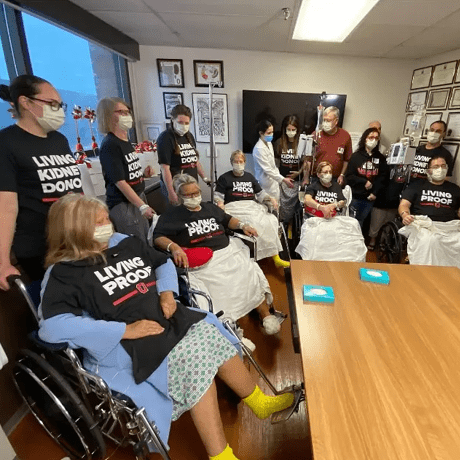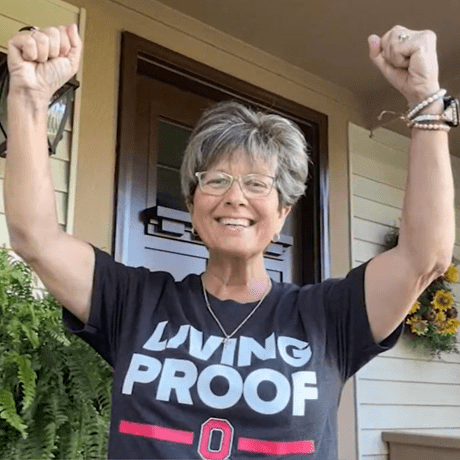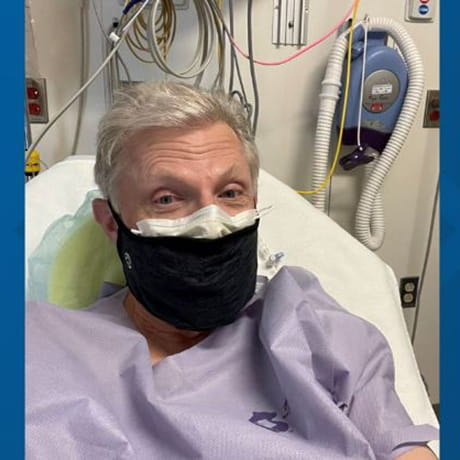After your surgery, you will be admitted to the transplant unit for recovery. Your hospital stay is typically five to seven days.
You will be seen daily by the transplant surgeons, midlevel providers and discharge coordinators. You’ll receive individualized education from floor nurses and attend education classes on medication and general discharge instructions. The discharge coordinators manage your care process, communicate with insurance case managers and plan for discharge. A social worker will visit you to address any psychosocial issues associated with the transplant.
Once discharged from the hospital, you will have:
- Lab Tests: You will visit a lab for testing two times a week for the first three months post-transplant. Your lab results are evaluated by a transplant coordinator and a transplant surgeon.
- Outpatient Clinic Visits: you will be seen in our outpatient clinic weekly for the first month, then again at 6 weeks, 9 weeks, 12 weeks, 4 months, 6 months, and one year post-transplant (and at any other time in between if warranted). You will be seen annually thereafter, unless more frequent visits are required. After you are released by your surgeon, you will be seen by the Transplant Medicine Service. Lab frequency is reduced as you progress.
We will communicate with your referring physician at the beginning and end of each hospitalization, as well as with each outpatient clinic visit.
Because of the many interactions of other medications with immunosuppressives, please check with the post-transplant office prior to filling any prescription.
Once your kidney function stabilizes, you may be eligible to transition back to a nephrologist closer to home. This transition is dependent on your kidney function and overall health at that time. Please discuss this option with your post-transplant coordinator.










